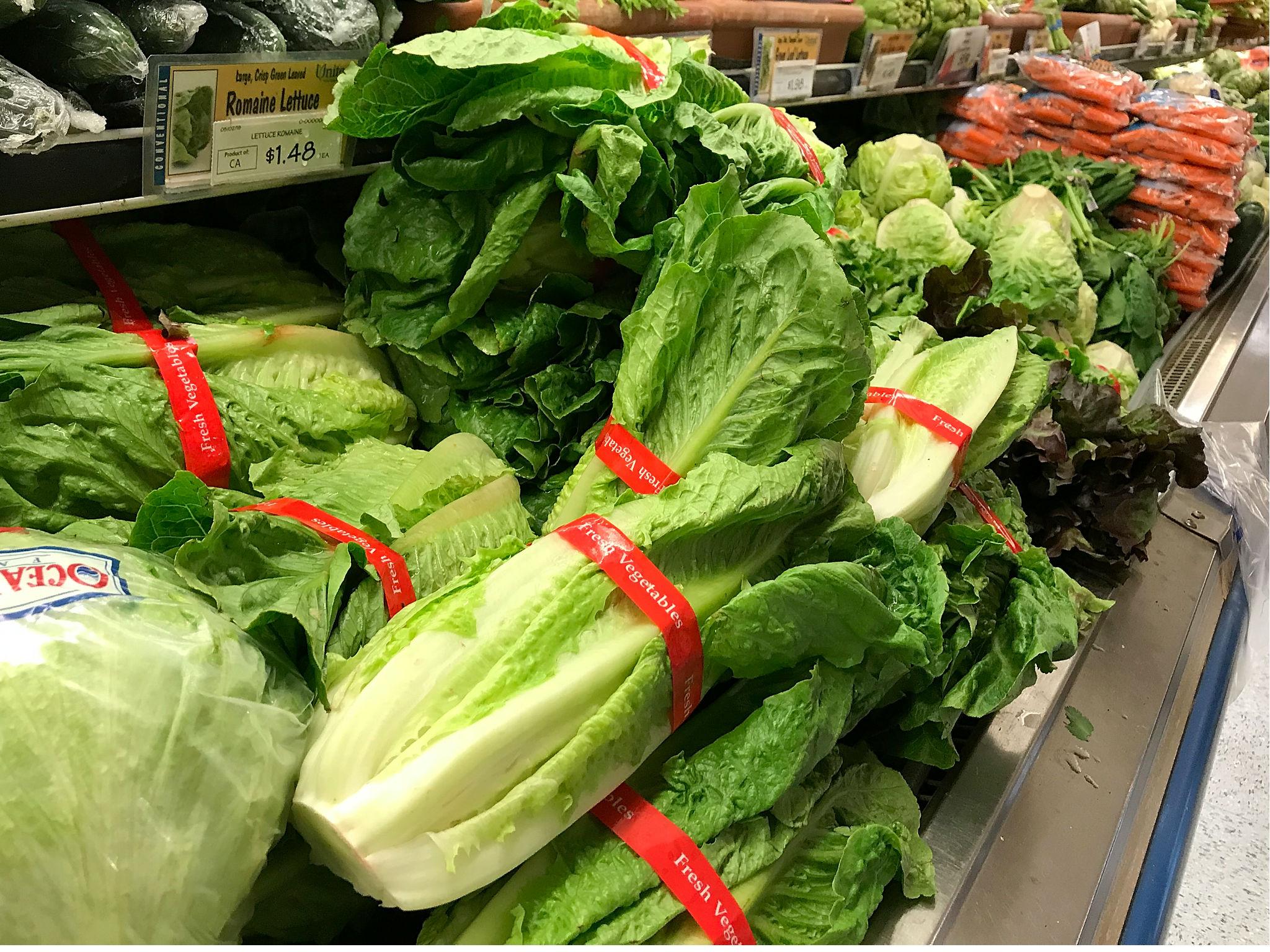E coli outbreak: First person dies after eating romaine lettuce
Officials are urging people to throw away their store bought lettuce unless they know for certain that it is not from the Yuma, Arizona area

The first person has died as a result of the nationwide food poisoning outbreak of E coli in romaine lettuce, which has left a total of 121 people sick in 25 states, the US Centres for Disease Control and Prevention (CDC) says.
The individual was not immediately identified, but the CDC says they died in California.
The number of sick people spiked by 23 since the CDC gave its most recent update on Friday. During that time, people became sick in at least three new states as well: Massachusetts, Utah, and Kentucky. Officials have urged people to throw away any store bought romaine lettuce, unless they know for certain that it did not come from the area surrounding Yuma, Arizona.
The rate of infection has left this latest outbreak coming ever closer to the scale of the 2006 E coli outbreak that affected baby spinach, where 205 people became ill and five people died.
The latest E coli strain of bacteria produces a toxin that can result in several worrisome symptoms, including vomiting, diarrhoea, and in some cases kidney failure. Most E coli strains are not actually harmful to humans, however, but a select few produce those toxins, and are usually felt by an individual three to four days after they ingested the germ. Most people who do experience symptoms related ot the bacteria are able to recover within a week.
So far, 52 people have been hospitalised in this latest outbreak, and 14 of those individuals were admitted with kidney failure.
E coli bacteria normally live in the intestines of animals like cows or pigs. Most E Coli infections in the 1990s came from contaminated hamburger meat, but the outbreaks are now more commonly sourced from leafy greens.
The CDC and federal investigators have not yet explained the origins of this latest outbreak, which has wondering what, with the scale of those infected, is taking so long.
“It’s 2018, and we’re basically a month into this outbreak, and they can’t link it to a farmer or a farm or a processor? I mean, candidly, that’s ridiculous,” Bill Marler, a food safety lawyer in Seattle who has been involved in lawsuits related to food illnesses for decades, told The Washington Post.
The CDC has emphasised that consumers should make sure at this point that any romaine lettuce they buy in the store did not originate from outside of Yuma, Arizona, which provides a hefty chunk of the leafy greens America consumes during the winter months.
Production from the Yuma region generally tapers off in mid-March or early April, and shifts to a different area in central California. Lettuce from that area is not currently believed to be implicated in this outbreak.
Join our commenting forum
Join thought-provoking conversations, follow other Independent readers and see their replies
Comments
Bookmark popover
Removed from bookmarks